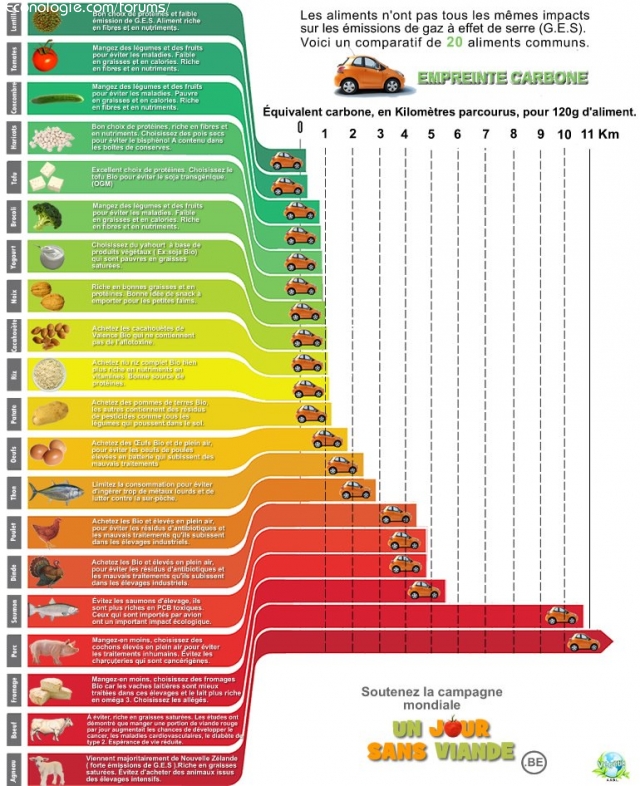Quinoa isn't bad either, we've been talking about it a lot lately:
Nutritional values for a 100 g serving
Energy (kCal) 120 kCal
4.4 g protein
Fat 1.92 g
Carbohydrates 21.3 g
Fiber 2.8 g
Water 71.61 g
Alcohol 0 g
Ashes 0.76 g
http://www.lanutrition.fr/fraliment/fra ... uinoa.html
What sets quinoa apart is its high protein content. The quality and balance of its proteins (between 12,5 and 16,7%) are superior to those of other cereals, and 37% of the proteins in quinoa are essential amino acids.
Essential amino acids are elements that the human organism is unable to produce and that it must therefore draw from food. A deficiency of amino acids limits human development because the cells of dead tissue cannot be repaired, nor new tissue created during growth. The essential amino acids for humans are: valine, leucine, threonine, lysine, tryptophan, histidine, phenylalanine, isoleucine, arginine and methionine.
The amino acids that quinoa contains in larger quantities than other cereals are: glutamic acid, aspartic acid, isoleucine, lysine, phenylalanine, tyrosine and valine. Glutamic acid is involved in the production of energy for the brain and in fundamental processes such as learning, memorization and neuronal plasticity; aspartic acid strengthens the functions of the liver and is vital for the maintenance of the cardiovascular system; Tyrosine has an important anti-stress function and plays a fundamental role, among others, in the fight against depression and anxiety; lysine, which has a double concentration in quinoa compared to other cereals, improves immune functions by helping to build antibodies, promotes gastric functions, contributes to tissue repair, participates in fatty acid metabolism, contributes calcium transfer and absorption, and may even seem to delay or block - with vitamin C - cancer metastases, to name a few of its multiple therapeutic properties. Like isoleucine, leucine and valine, these intervene together, inter alia, in the production of muscular energy, the improvement of neuromuscular disorders, the prevention of damage to the liver, while helping to maintain a balance of blood sugar levels.
Lipids
The majority of quinoa fatty acids are monounsaturated and polyunsaturated, which means that their integration into the diet is beneficial. They are indeed
etc ..
http://www.fao.org/quinoa-2013/what-is- ... -value/fr/



